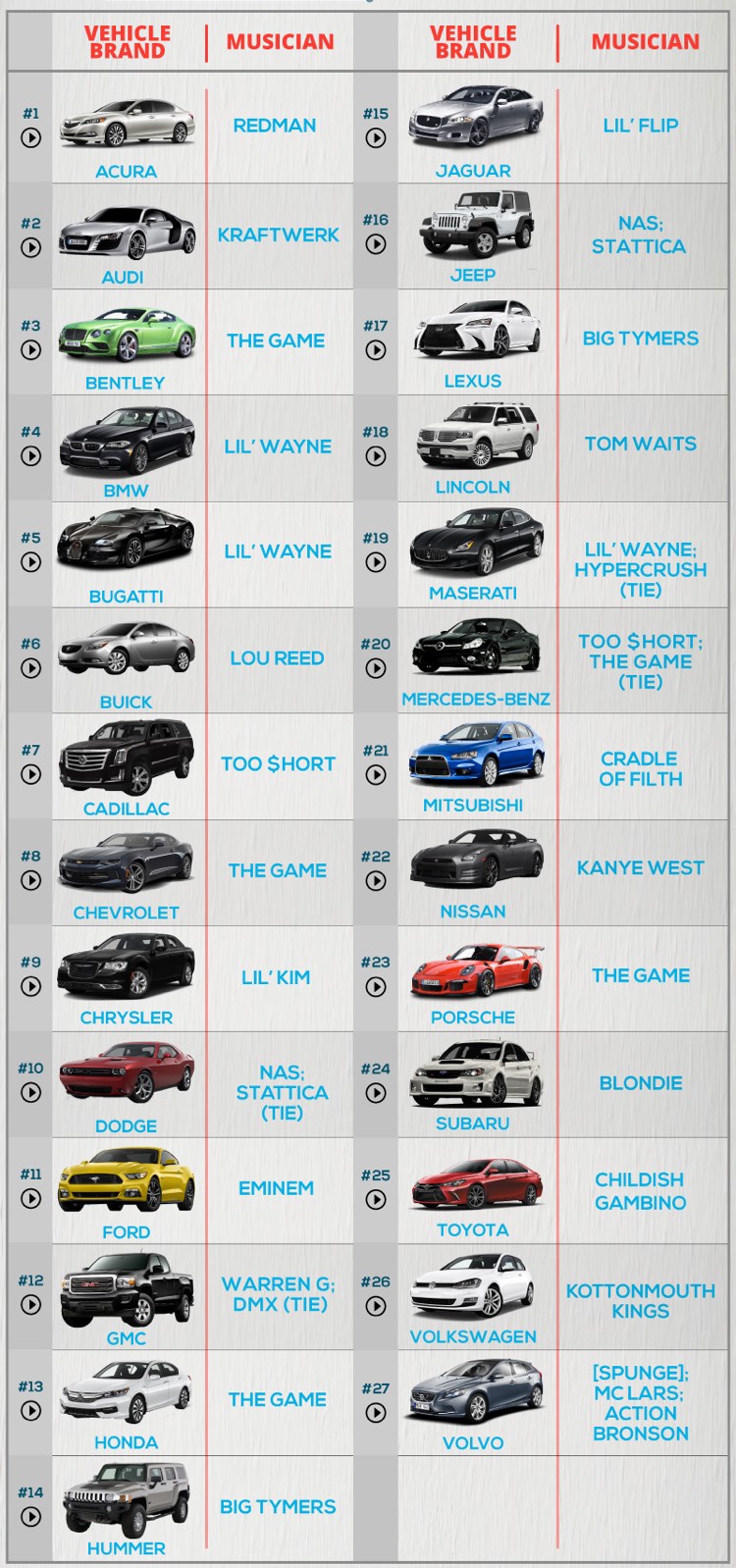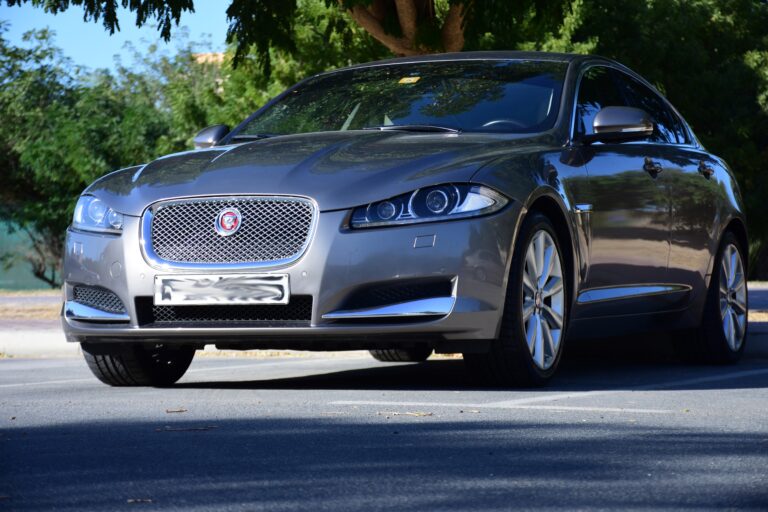Domestic Car Brands: A Comprehensive Guide to National Automotive Powerhouses
Domestic Car Brands: A Comprehensive Guide to National Automotive Powerhouses cars.truckstrend.com
Introduction: The Heartbeat of National Industry
The concept of "domestic car brands" resonates deeply within the economic and cultural fabric of many nations. More than just vehicles, these brands represent national pride, technological prowess, and significant economic engines. A domestic car brand is typically defined as an automotive manufacturer headquartered within a specific country, with its primary research and development, design, and often a substantial portion of its manufacturing operations based there. While the globalized nature of the automotive industry means that parts and even assembly can span multiple continents, the core identity and strategic direction of a domestic brand remain rooted in its home nation.
Domestic Car Brands: A Comprehensive Guide to National Automotive Powerhouses
Understanding domestic car brands is crucial for consumers, policymakers, and enthusiasts alike. For consumers, it influences purchasing decisions based on perceived quality, values, and support for local economies. For nations, a robust domestic automotive industry signifies innovation, job creation, and a strong manufacturing base, contributing significantly to GDP, export revenues, and technological advancement. This article will delve into the multifaceted world of domestic car brands, exploring their definitions, global presence, benefits, challenges, and practical considerations for anyone looking to navigate this vital sector.
What Defines a Domestic Car Brand? Unpacking the Identity
Defining a "domestic car brand" in today’s interconnected world can be more nuanced than it appears. While the most straightforward criterion is the location of the company’s headquarters, several other factors contribute to its domestic identity:
- Primary Research & Development (R&D) Centers: Where the core engineering, design, and technological innovation take place.
- Manufacturing Footprint: The country where a significant portion of its vehicles are assembled and components are sourced. While many brands have global manufacturing plants, a strong domestic base is key.
- Ownership Structure: While some iconic brands might be owned by foreign conglomerates (e.g., Volvo by China’s Geely, Jaguar Land Rover by India’s Tata Motors), their historical legacy, R&D centers, and often a substantial portion of their workforce remain in their country of origin, maintaining a strong domestic association.
- Market Focus and Design Philosophy: Domestic brands often design vehicles with the specific preferences, driving conditions, and regulatory requirements of their home market in mind. For instance, large trucks are quintessential American domestic products, while compact city cars dominate in Japan and parts of Europe.

It’s important to distinguish between a domestic brand and a foreign brand manufacturing domestically. For example, a Toyota Camry built in Kentucky is a car assembled in the US, but Toyota remains a Japanese domestic brand. Conversely, Ford, headquartered in Michigan, is an American domestic brand, even if some of its parts come from abroad or it has plants globally.
Major Domestic Car Brands Around the Globe
Every major automotive nation boasts its own set of iconic domestic brands. Here’s a glimpse at some of the most prominent:
- United States:
- General Motors (GM): Headquartered in Detroit, encompassing brands like Chevrolet, Cadillac, GMC, and Buick. Known for trucks, SUVs, and luxury vehicles, with a growing focus on EVs.
- Ford Motor Company: Based in Dearborn, Michigan, with brands like Ford and Lincoln. A global leader in trucks (F-Series), SUVs, and increasingly, electric vehicles.
- Stellantis (North American Operations): While Stellantis is a Dutch-Italian multinational corporation, its American brands—Jeep, Ram, Dodge, and Chrysler—are profoundly rooted in US automotive history and continue to operate as quintessential domestic entities within the American market, dominating in SUVs, trucks, and muscle cars.

- Japan:
- Toyota: The world’s largest automaker, known for reliability, fuel efficiency, and pioneering hybrid technology (Prius). Brands include Toyota and Lexus.
- Honda: Renowned for engineering, efficient engines, and a diverse lineup from motorcycles to cars and power equipment. Brands include Honda and Acura.
- Nissan: Known for innovation, SUVs, and early adoption of mass-market EVs (Leaf). Brands include Nissan and Infiniti.
- Other notable Japanese brands include Mazda, Subaru, and Mitsubishi.
- Germany:
- Volkswagen Group: A giant encompassing Volkswagen, Audi, Porsche, Skoda, SEAT, and Lamborghini. Known for precision engineering, performance, and luxury.
- Mercedes-Benz Group: Synonymous with luxury, innovation, and high-performance vehicles.
- BMW Group: Known for driving dynamics, luxury, and advanced technology. Includes BMW, Mini, and Rolls-Royce.
- South Korea:
- Hyundai Motor Group: Rapidly growing, offering modern designs, advanced technology, and strong warranties. Includes Hyundai, Kia, and the luxury brand Genesis.
- China:
- A burgeoning market with numerous domestic players like BYD (a global leader in EVs), Geely (owner of Volvo and Lotus), SAIC Motor (owner of MG), Chery, Great Wall Motor, and EV startups like Nio, XPeng, and Li Auto.
- United Kingdom:
- While many iconic British brands are now foreign-owned (Jaguar Land Rover by Tata, Bentley by VW, Rolls-Royce by BMW), their design, engineering, and significant manufacturing bases often remain in the UK, maintaining a strong domestic heritage.
- Italy:
- Ferrari, Lamborghini, Maserati: Iconic luxury and performance brands, now largely part of larger international groups (Ferrari is independent but spun off from Fiat/Stellantis, Lambo is VW Group, Maserati is Stellantis).

Benefits of Choosing Domestic Car Brands
Opting for a domestic car brand often comes with a host of advantages, both for the individual consumer and the broader national economy:
- Economic Impact: Perhaps the most significant benefit is the direct and indirect support for the local economy. Purchasing a domestic vehicle helps create and sustain jobs in manufacturing, engineering, design, sales, and related industries (parts suppliers, logistics). This translates into higher tax revenues, supporting public services and national prosperity.
- Parts Availability and Service Network: Domestic brands typically have extensive dealership networks and parts supply chains within their home country. This often means easier access to service, quicker repairs, and more readily available (and potentially more affordable) spare parts, reducing ownership costs and inconvenience.
- Understanding Local Market Needs: Domestic brands often have an inherent understanding of their home market’s specific preferences, driving conditions, and regulatory environment. This can result in vehicles better tailored to local tastes – whether it’s the need for robust trucks in the US, compact city cars in Europe, or durable vehicles for challenging terrains elsewhere.
- National Identity and Patriotism: For many, choosing a domestic car is an expression of national pride and a way to support "their own." This can foster a sense of community and shared purpose.
- Innovation and Local Investment: Domestic brands are often at the forefront of national innovation initiatives, investing heavily in R&D within their home country. This leads to advancements in areas like electric vehicles, autonomous driving, and advanced safety features, benefiting the entire industry.
Challenges Faced by Domestic Car Brands
Despite their strengths, domestic car brands navigate a complex global landscape filled with challenges:
- Intense Global Competition: They face fierce competition from foreign brands, many of which have established strong manufacturing presences and tailored products for various markets.
- High Labor Costs: In developed nations, labor costs can be significantly higher than in emerging economies, potentially impacting production costs and vehicle pricing.
- Supply Chain Vulnerability: The globalized automotive supply chain means that disruptions in one part of the world (e.g., chip shortages, natural disasters) can severely impact domestic production.
- Shifting Consumer Preferences: Keeping pace with rapidly evolving consumer demands for new technologies (e.g., electrification, connectivity), vehicle types (e.g., SUVs displacing sedans), and ownership models (e.g., subscriptions, ride-sharing) requires massive investment and agility.
- Legacy Infrastructure: Large, established domestic manufacturers can sometimes be slower to adapt to new trends or technologies compared to agile startups, due to existing infrastructure, extensive workforces, and complex decision-making processes.
- Environmental Regulations: Meeting increasingly stringent emissions and safety regulations globally requires continuous R&D investment and can add to production costs.
Practical Advice for Choosing a Domestic Car
When considering a domestic car brand, here’s some practical advice to ensure you make an informed decision:
- Define Your Needs First: Before focusing on "domestic," determine what kind of vehicle you truly need. Consider your budget, intended use (daily commute, family hauling, off-roading), desired features (safety, tech, comfort), fuel efficiency, and size requirements.
- Research Specific Models, Not Just Brands: While brand reputation is important, individual models within a brand can vary widely in terms of reliability, features, and performance. Look up independent reviews (e.g., Consumer Reports, JD Power, Edmunds), crash test ratings (NHTSA, IIHS), and owner forums for specific models.
- Prioritize Reliability and Resale Value: Investigate the long-term reliability of models you’re considering. Brands like Toyota and Honda (Japanese domestic) consistently rank high in reliability. For US domestic brands, recent years have seen significant improvements. High reliability often translates to better resale value.
- Test Drive Thoroughly: Never buy a car without a comprehensive test drive. Pay attention to comfort, handling, acceleration, braking, visibility, and how well the infotainment system works.
- Consider Total Cost of Ownership: Look beyond the purchase price to include factors like insurance costs, maintenance, fuel efficiency, and expected depreciation.
- Check Dealership Network and Service: Evaluate the proximity and reputation of local dealerships for your chosen brand. A strong, reputable service department is invaluable for maintenance and repairs.
- Explore Incentives: Many governments offer incentives for purchasing domestically produced electric vehicles or vehicles meeting certain efficiency standards. Research if any apply to your desired domestic model.
- Understand the "Global Car" Reality: Be aware that even "domestic" cars utilize global supply chains. A car assembled in your country might still have parts from dozens of other nations. The primary benefit of choosing domestic lies in supporting the local R&D, design, and assembly jobs, and the economic impact generated by the company’s headquarters and major operations.
Representative Price Guide for Major Domestic Car Brands
It’s impossible to give a single "price" for an entire brand, as prices vary dramatically by model, trim level, optional features, and regional market conditions. Below is a representative guide showcasing typical price ranges for mainstream vehicles from major domestic brands in various countries. These are estimated starting MSRPs (Manufacturer’s Suggested Retail Price) in USD and can fluctuate significantly.
| Country of Origin | Brand | Typical Vehicle Types | Representative Models (Examples) | Estimated Price Range (USD) | Key Focus Areas |
|---|---|---|---|---|---|
| USA | Ford | Trucks, SUVs, Sedans, EVs | F-150, Explorer, Mustang Mach-E | $30,000 – $80,000+ | Workhorse trucks, family SUVs, performance, EVs |
| USA | Chevrolet (GM) | Trucks, SUVs, Sedans, Sports Cars, EVs | Silverado, Equinox, Corvette, Bolt EV | $25,000 – $100,000+ | Versatility, performance, electrification |
| USA | Jeep (Stellantis) | SUVs, Off-road vehicles | Wrangler, Grand Cherokee | $30,000 – $70,000+ | Off-road capability, adventure, SUVs |
| Japan | Toyota | Sedans, SUVs, Trucks, Hybrids, EVs | Camry, RAV4, Prius, Tacoma | $25,000 – $60,000+ | Reliability, fuel efficiency, hybrid tech |
| Japan | Honda | Sedans, SUVs, Minivans, Hybrids | Civic, CR-V, Pilot | $23,000 – $50,000+ | Practicality, reliability, engineering |
| Germany | Volkswagen | Sedans, SUVs, Hatchbacks, EVs | Jetta, Tiguan, ID.4 | $25,000 – $60,000+ | Engineering, practicality, quality, EVs |
| Germany | Mercedes-Benz | Luxury Sedans, SUVs, Performance | C-Class, GLC, EQS | $45,000 – $200,000+ | Luxury, performance, technology, prestige |
| South Korea | Hyundai | Sedans, SUVs, EVs, Hybrids | Elantra, Tucson, IONIQ 5 | $22,000 – $60,000+ | Value, modern design, technology, EVs |
| South Korea | Kia | Sedans, SUVs, EVs, Minivans | K5, Telluride, EV6 | $20,000 – $60,000+ | Design, features, warranty, EVs |
| China | BYD | EVs, Hybrids, Sedans, SUVs | Seal, Atto 3 (Yuan Plus) | $20,000 – $50,000+ | Electric vehicle leadership, battery tech |
Note: Prices are highly approximate and subject to change based on model year, trim level, options, regional taxes, incentives, and market conditions. Luxury and high-performance variants often exceed the upper end of these ranges.
Frequently Asked Questions (FAQ) about Domestic Car Brands
Q1: What exactly makes a car "domestic"?
A1: A car is considered domestic primarily based on the location of its brand’s headquarters, where its core R&D and design work takes place, and where a significant portion of its manufacturing operations are located. While parts and assembly can be global, the brand’s ultimate identity and strategic direction are rooted in its home country.
Q2: Are all parts of a "domestic" car made domestically?
A2: No. In today’s globalized automotive industry, it’s rare for any car, domestic or foreign, to have 100% of its components sourced from a single country. Even "domestic" cars utilize complex global supply chains for parts, raw materials, and specialized components. The "domestic" label primarily refers to the brand’s origin and significant manufacturing presence.
Q3: Do domestic cars offer better value than foreign cars?
A3: Value is subjective and depends on many factors, including purchase price, fuel efficiency, reliability, features, and resale value. There’s no blanket answer. Both domestic and foreign brands offer excellent value propositions across different segments. It’s best to compare specific models from both categories based on your individual needs and budget.
Q4: Which domestic brands are generally considered the most reliable?
A4: Reliability rankings often vary by year and specific model. Historically, Japanese domestic brands like Toyota and Honda have consistently topped reliability charts. However, many US, German, and South Korean domestic brands have significantly improved their reliability ratings in recent years, with brands like Hyundai, Kia, and specific models from Ford and GM showing strong performance. Always check recent reliability surveys (e.g., from Consumer Reports, JD Power).
Q5: Is buying a domestic car always supporting local jobs?
A5: Yes, generally. While the supply chain is global, purchasing a car from a domestic brand directly supports jobs in that country’s R&D, design, engineering, assembly, sales, and administrative functions. It also contributes to the local tax base and stimulates related industries, providing a significant economic benefit to the home nation.
Q6: What are the environmental impacts of choosing domestic cars?
A6: The environmental impact is less about whether a car is "domestic" and more about its fuel efficiency, emissions, and production processes. Many domestic brands are now investing heavily in electric vehicles (EVs) and sustainable manufacturing practices. Consumers should look at specific model ratings (e.g., MPG, electric range) and the manufacturer’s overall commitment to sustainability, regardless of its country of origin.
Conclusion: The Enduring Legacy of Domestic Car Brands
Domestic car brands are more than just companies; they are symbols of national innovation, economic prowess, and cultural identity. From the robust trucks of America to the precision-engineered sedans of Germany, the reliable vehicles of Japan, and the rapidly advancing electric cars of China, these brands reflect the unique characteristics and priorities of their home nations.
While the automotive world becomes increasingly interconnected, with global supply chains and international ownership, the core essence of a domestic car brand – its headquarters, primary R&D, and significant manufacturing base – remains a vital anchor. Choosing a domestic vehicle often means supporting local economies, fostering innovation within your own country, and benefiting from vehicles designed with local needs in mind. As the industry continues its transformative journey towards electrification and autonomous driving, domestic car brands are poised to play a crucial role, adapting and innovating to meet the challenges and opportunities of the future. Their enduring legacy will continue to drive economies and shape the way the world moves.





